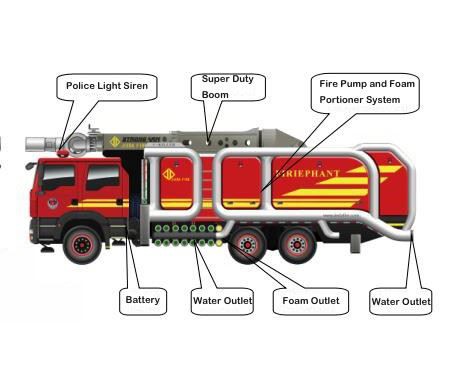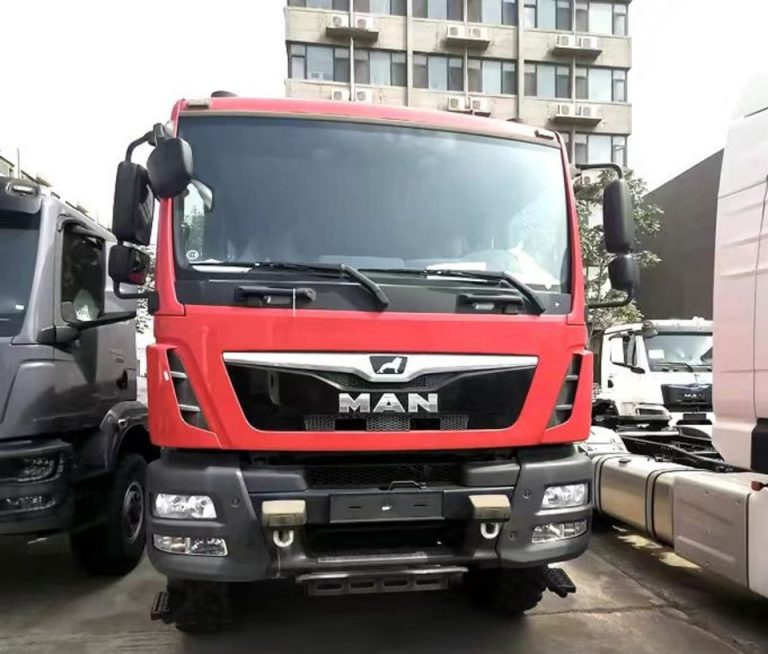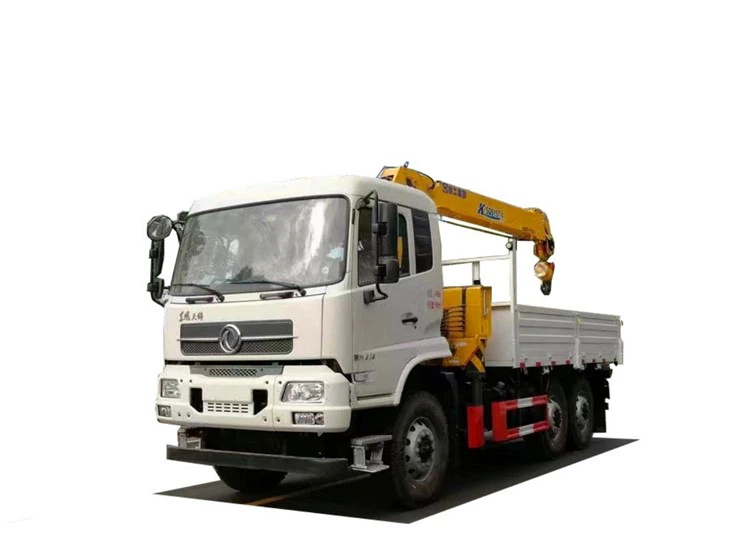Waste management is a critical aspect of maintaining cleanliness and hygiene in urban and rural areas alike. One essential tool in this process is a truck garbage compactor, designed to efficiently compress waste and minimize disposal costs. This comprehensive guide explores all facets of truck garbage compactors, including their types, benefits, and operational tips for maximizing efficiency.
What is a Truck Garbage Compactor?
A truck garbage compactor is a specialized vehicle designed to collect and compact waste materials for transportation to landfills or recycling facilities. These trucks feature a hydraulic system that compresses waste, significantly reducing its volume and facilitating easier transport. This innovative design makes waste management more efficient and cost-effective.
Types of Truck Garbage Compactors
1. Side-Loader Compactors
Side-loader compactors are equipped with a mechanical arm that lifts containers from the side of the truck. They are ideal for residential areas, allowing easy access to bins placed curbside.
2. Rear-Loader Compactors
Rear-loader compactors collect waste from the back of the vehicle. They are commonly used in industrial settings for heavy-duty waste collection, and they typically have a larger capacity than side-loaders.
3. Front-Loader Compactors
Front-loader compactors are designed with a container system at the front of the truck. They are used for commercial waste collection, especially in large facilities with a high volume of waste.
4.喧 Side-Loader vs Rear-Loader vs Front-Loader
| Type | Best For | Capacity | Efficiency |
|---|---|---|---|
| Side-Loader | Residential Areas | Medium | High |
| Rear-Loader | Industrial & Heavy Waste | High | Medium |
| Front-Loader | Commercial Facilities | Very High | High |
Benefits of Using a Truck Garbage Compactor
1. Volume Reduction
Compactors significantly reduce the volume of waste, allowing more material to be transported at once. This leads to fewer trips to disposal sites, cutting fuel and labor costs.
2. Cost Efficiency
By reducing the number of trips and maximizing load capacity, businesses and municipalities can save on overall waste disposal costs, making compactors a financially sound investment.
3. Environmental Impact
Truck garbage compactors support environmental sustainability by promoting efficient waste management and recycling practices. Reduced trips mean less fuel consumption and fewer greenhouse gas emissions.
4. Improved Hygiene
By keeping waste contained and compacted, the risk of spills and odors is minimized, contributing to a cleaner and healthier environment for communities.
Operational Tips for Using Truck Garbage Compactors
1. Regular Maintenance
Routine checks and maintenance of the compactor’s hydraulic and compacting systems are essential to ensure optimal performance. Schedule consistent servicing to prevent potential breakdowns.
2. Training for Operators
Ensure that all operators are adequately trained to use the machinery. Understanding loading techniques and safety protocols can reduce accidents and increase efficiency.
3. Optimize Load Distribution
Load waste evenly within the compactor to maximize compaction benefits. Uneven loading can affect performance and increase wear on the truck.
4. Sort Waste When Possible
Sorting waste at the collection point leads to better recycling opportunities. It can also lower the weight of garbage and improve compacting efficiency.
Truck Garbage Compactor vs. Traditional Garbage Trucks
While traditional garbage trucks collect waste, they do not compress it effectively. In comparison, truck garbage compactors specialize in volume reduction. This section highlights the differences between the two for clarity.
| Feature | Garbage Truck | Garbage Compactor |
|---|---|---|
| Compaction Rate | Low | High |
| Load Frequency | High | Low |
| Cost Efficiency | Lower | Higher |
Industry Applications of Truck Garbage Compactors
1. Residential Waste Management
Municipalities often use truck garbage compactors for residential waste collection, ensuring neighborhoods are maintained cleanly and efficiently.
2. Commercial Facilities
Big businesses and industrial facilities implement compactors to manage high volumes of waste. Regular collections help minimize overflow and maintain operations.
3. Recycling Facilities
Compactors are essential in recycling plants. They help compress recyclable materials, making it easier to transport and process them.
4. Construction Sites
Construction sites generate significant waste. Compactors aid in managing debris, wood, and other materials efficiently while maintaining site cleanliness.
Choosing the Right Truck Garbage Compactor
When selecting a truck garbage compactor, consider the following factors:
1. Waste Type
Identify the types of waste you’ll be collecting, as this influences compactor design and capacity.
2. Volume of Waste
Estimate the average waste volume generated to determine the right size and model for your needs.
3. Route Logistics
Evaluate the routes where the compactor will operate. Ensure it can efficiently navigate through narrow streets if required.
4. Budget Considerations
Consider your budget for both initial purchase and ongoing maintenance costs. Balance pricing with the required capacity and efficiency.
Future Trends in Truck Garbage Compactors
1. Smart Technology Integration
Future compactors may integrate IoT technology for real-time monitoring of waste levels, optimizing collection schedules, and promoting efficiency.
2. Electric Compactors
The shift towards sustainable practices may lead to the development of electric-powered garbage compactors, minimizing environmental impact.
3. Advanced Recycling Features
Compactors will continue evolving to support recycling processes, focusing more on sorting and compacting recyclables separately.
FAQ Section
1. How does a truck garbage compactor work?
A truck garbage compactor collects waste in a designated compartment and uses hydraulic power to compress it, reducing the volume and allowing for more efficient transportation.
2. Are truck garbage compactors eco-friendly?
Yes, they promote eco-friendliness by minimizing waste volume, reducing fuel consumption during transport, and facilitating recycling efforts.
3. What maintenance is required for truck garbage compactors?
Regular checks of the hydraulic system, compacting mechanisms, and overall functionality should be performed following manufacturer guidelines.
4. How can I optimize waste collection with a compactor?
Ensure even load distribution, sort waste whenever possible, and schedule regular maintenance for the best results.
5. What types of waste can be collected using a truck garbage compactor?
Compactors can handle various waste types, including household refuse, construction debris, and recyclables, depending on the model specifications.



